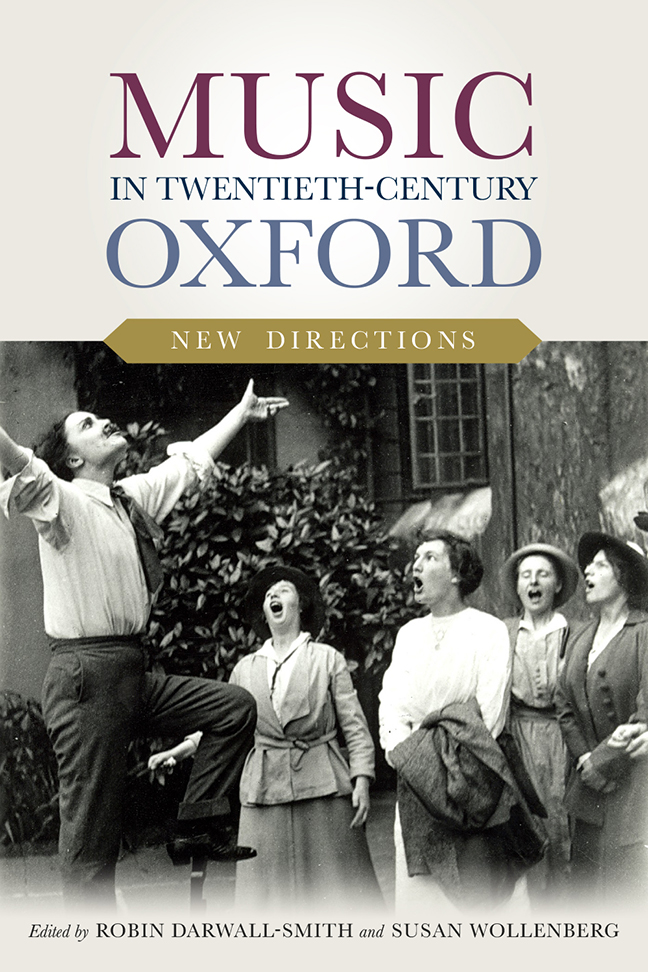1 - Setting the Scene
Published online by Cambridge University Press: 09 January 2024
Summary
Music has always played a central role in the life of Oxford, both in the city and the university, whether through the great collegiate choral foundations, the many amateur choirs and instrumentalists, or the profes-sional musicians regularly drawn to perform there. Music at Oxford from earlier centuries has long been a fruitful source of study, but the twentieth century has not yet received its proper due. We hope this book will start to make good that deficiency.
It has not been, and could not realistically have been, our aim to assemble a comprehensive history of music in twentieth-century Oxford. Given the enormous scope of the book's subject as a whole, selectivity has inevitably been necessary throughout, and has helped shape the differing approaches and structures of the chapters. Their focus is primarily on the ‘classical’ music tradition. Oxford musicians and visiting performers during the twentieth century cultivated other genres such as pop, jazz, and folk, in venues varying in size from the New Theatre (in some phases known as the Apollo) to a city pub. These areas of Oxford's musical life deserve – and we hope will attract – attention from historians that is beyond the scope of our project here.
The well-established notion of the ‘long century’ has proved indispensable in forming the structure of this volume. Its application has been flexible, depending on the chapter topics. For example, with Chapter 6 on the women's colleges the topic clearly invites us to begin the story from the late 1870s, when the earliest such colleges, Lady Margaret Hall and Somerville, were established, while Chapter 8 opens in 1930, when the University College Musical Society was founded. For Chapter 2 (‘Music in the Town’), whose topic is packed with a myriad of musical enterprises, it made sense for the chronological range of its content to start from the 1880s, in view of the founding of numerous organizations at that time which lasted well into the following century or beyond. (However, we have not included in that chapter ventures that began life only at the close of the twentieth century.) And while the focus of Chapter 10 is primarily on the decades around the mid-century, when the Faculty of Music was established under Sir Jack Westrup's leadership, it concludes with highlights of its continuing development under successive holders of the Heather Professorship.
- Type
- Chapter
- Information
- Music in Twentieth-Century OxfordNew Directions, pp. 1 - 6Publisher: Boydell & BrewerPrint publication year: 2023



